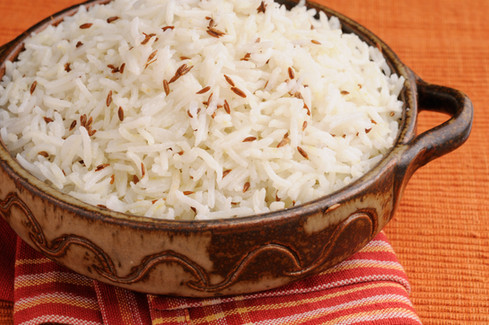Is your pancreas is over worked and under paid?
- Helen Kimber

- Jun 8, 2022
- 6 min read
We often hear the phrase “Over worked and under paid” in relation to our jobs and how we as employees are treated by employers. However, often we fail to recognise how badly we treat our own amazing machine called the human body – over working it by restricting sleep, spending little time outdoors, limiting its movement and feeding it with beige food that is lacking in vital nutrients that enable it to thrive optimally.

As nutritionist I always work holistically and functionally with clients but I want to in this article draw attention to a specific gland in the body the pancreas, that is often over worked and under paid. Eventually just like those who are exploited and undervalued in the workplace - an underpaid and undervalued pancreas will go on strike or worse, break down. and when it breaks down can have long term catastrophic consequences for the Whole machine!!!

In this article I will explore and explain the role of the pancreas in relation to blood sugar control and how if you are over working your pancreas and under paying it nutritionally and with poor lifestyle choices what tools you may employ to improve the situation.
The pancreas
A not very sexy gland situated near to the liver. Two of its main ones.

1) Digestive function - When we eat the pancreas secretes enzymes into the stomach which help to break down our food into key nutrients which are then used by the body for optimal health. Read more about this in the previous blogs I have written
2) Hormonal function, The pancreas is responsible for maintaining a stable blood sugar level in the body via 2 key hormones Insulin and glucagon. When this function fails this is termed. diabetes.
Diabetes is not just "a bit of a high blood sugar that can be controlled with medication" It is a chronic condition that has negative impact on many functions and impairs quality of life. Type II diabetes occurs frequently when the pancreas is over worked and under paid. Eventually it goes on strike! Lifestyle choice and nutrition are mainly responsible for type II diabetes.
Some frightening statistics from Diabetes UK
More than 4.9 million people in the UK have diabetes
13.6 million people are now at increased risk of type 2 diabetes in the UK
You're more at risk of type 2 diabetes if you have a close family member who has diabetes
850,000 people are currently living with type 2 diabetes but are yet to be diagnosed
Research has consistently shown that for some people, combined lifestyle interventions - including diet, physical activity and sustained weight loss - can be effective in reducing the risk of type 2 diabetes.
In this article I will address the following:
1) The link between carbohydrate metabolism and blood sugar and its impact on the pancreas
2) What nutrients, foods and life style choices can support you in balancing blood sugars and ensuring your pancreas in not over worked and under paid.
The role of the pancreas and blood glucose when we eat
Both starches and sugars are broken down in the body into GLUCOSE. It does not matter where the glucose comes from- bread, potatoes, bagels, bananas, apples, nectarines etc, etc. The body cannot use ANY other form of sugar. apart from glucose. Glucose is used for energy and stored for emergency uses where It can to be converted back into glucose by the body to use for energy.
1)Glucose can be used as the immediate source of energy- the brain needs it to function.
2) If blood sugar levels are as they should be INSULIN converts excess Glucose into a storage substance called glycogen where it is stored in the liver and muscles-for use when blood sugar levels become low.
3) If blood sugar levels are ok, and the stores in the liver are full, the extra glucose has no where to go, so the body converts it to FAT. Think of a suit case that is full – no more clothes will fit in it so you need extra luggage.
If there is insufficient glucosein the blood to meet the requirements of the body then magic happens!
GYLCOGENOLYSIS occurs- Glucose is produced in the body from glycogen stores in the muscles and the liver. The pancreas will secrete the hormone GLUCAGON to convert stored glucose which we call GLYCOGEN into glucose for the blood stream.
What happens when these store are all used up?
GLUCONEOGENESIS occurs!!!
This is when glucose is generated from non carbohydrate sources
Fats are broken down- hence weight loss.
Protein can also be broken down. This is not beneficial as muscle wastage and muscle loss occur as seen when people go on “quick fix” fast diets which are very low in carbohydrates. or people who constantly yo yo diet ot those with eating disorders.
So what is all the fuss about?
The long term effects of increased blood sugar can lead to insulin resistance, this is where the pancreas secretes insulin but the body is resistant to it and so blood glucose continues to stay high. This high glucose in the blood can damage blood vessels and lead to a multitude of chronic health issues which have a long term negative effect on both quality and quantity of life. Often the diabetes is accompanied by other chronic conditions and grouped together they are termed "metabolic syndrome."
Metabolic syndrome - where individuals present with the following chronic health conditions- obesity, diabetes, high blood pressure, visceral obesity, Cardiovascular issues, poor blood lipid profile ,and a poor nutrient intake which then cause chronic inflammation,

All this can often be attributed to the bombardment of our amazing bodies constantly with carbohydrates- or glucose!
Effects of constantly eating carbohydrates
Reflect on what you eat over your day
Carbohydrate cereals or toast for breakfast, a couple of hours later a sugary snack or if you are being "healthy" fruit, a sandwich possibly for lunch with fruit or crisps and maybe a drink of juice. Another afternoon snack often again carbohydrate and then in the evening a meal that is possible pasts or rice based. Drinks with sugar in, alcohol - mainly carbohydrate.
Every single meal is loaded with carbohydrates and the pancreas has to keep manufacturing insulin to help manage blood glucose levels. So the blood glucose is constantly “spiking” and the pancreas never gets time to rest.
Over long term this bombardment could cause insulin resistance. On top of this diets full of carbohydrates are often lacking in key nutrients that are required to manufacture Insulin, because if we fail to put the right fuel in, the machine fails to produce what we need it to!
Some solutions to helping support the pancreas so it becomes a happy contented motivated worker?
1) STOP grazing Eat a good substantial breakfast, If it is protein based you are less likely to feel hungry mid morning and grab a sugary snack. Have a protein based and Colourful lunch. In the afternoon if you do feel hungry try to have a protein based snack. For your evening meal - Here eat as brightly a coloured meal as you can. Eat a rainbow.

2) Avoid eating and snacking later in the evening. Like all machines our internal mechanisms need a rest. Try having your evening meal and then avoid picking and snacking afterwards. An overnight "fast" between about 8pm and 8am can be very beneficial. Aim to eat all meals within a 12-hour window e.g. If you eat breakfast at 8am then eat your evening meal no later than 8pm. A challenge in todays fast paced world! This lifestyle has been practised in Ayurveda for 1000's of years and now conventional medicine, advocates it!!
3) Reduce the amount of carbohydrate you consume. We are told that a third of our diet should be carbohydrate! Even if you are very active and using lots of energy, your pancreas is still having to work hard to break down all the different types of sugars and starches into glucose. It does not matter what type of carbohydrate you consume, if you constantly bombard your body with starches and sugars Your pancreas has to constantly secrete insulin to convert excess glucose into glycogen or fat. Our bodies are not designed to eat manufactured wheat and carbohydrate products at every meal.
Do you have reactive Hypoglycaemia?

Reactive hypoglycaemia – Where the blood glucose falls low after eating and then the body seems to crave more carbohydrates to “mop up” the excess insulin. It can become a viscous cycle. This causes abnormal hungers, disrupts your hormones and may lead to diabetes. Often people who have binge issues with food experience reactive hypoglycaemia and may experience cravings even after eating a great many calories or a really satisfying meal. If you have had a very large carbohydrate load. blood sugar can drop rapidly due to the release of insulin, your brain thinks there is a famine, and produces hormones which slow your metabolism, the excess sugar is stored as fat, causes you to feel exhausted and you may start to to gain weight easily.
I have only skimmed the surface with regards to how important maintaining stable blood sugar is for long term health and what tools you can use to help you support a more stable blood sugar.
If you would like more details on how I may be able to help support you with this or other areas of nutrition and well being book a discovery call to start your journey onto being your own Hero.
Om shanti
Helen















Comentarios